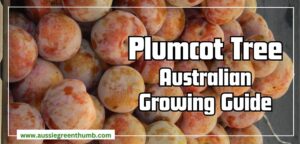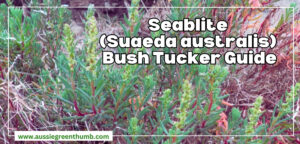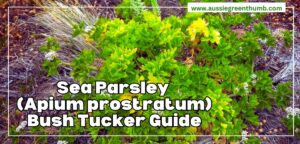Callistemon ‘Great Balls of Fire’ is one of our most colourful and prized garden shrubs noted for its highly ornamental yet practical influence in outdoor spaces. This select cultivar was bred in Australia over two decades ago and remains a garden favourite across the country to this day.
It is cherished for its striking and intense pinkish-red new growth and wonderfully dense and spreading habit, making it an excellent pick for those looking for a showy and useful shrub in their gardens.
In this article, I will explain everything you need to know in order to grow and care for this special Australian cultivar.
More...
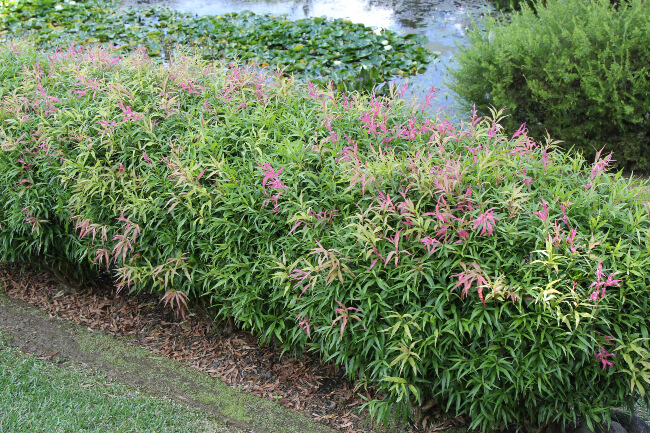
Source: Auckland Botanic Gardens
Family: | Myrtaceae |
|---|---|
Genus: | Callistemon |
Species: | C. salignus |
Cultivar: | ‘Great Balls of Fire’ |
Common Name: | Callistemon ‘Great Balls of Fire’ |
Origin: | Australian Native |
Location: | Outdoor |
Type: | Evergreen shrub |
Growth: | 1 to 2 metres tall and wide |
Sun requirements: | Full sun to half shade |
Foliage Colour: | Green, pink, red |
Flower Colour: | White, red, green |
Flowering: | Summer (rare) |
Edible Parts: | Edible roots |
Maintenance level: | Low |
Poisonous for pets: | Non-toxic to cats and dogs |
Introducing Callistemon ‘Great Balls of Fire’
Easy to grow and care for and hardy in a variety of situations, this shrub is worth considering regardless of your current gardening experience. We are home to some truly spectacular native flora in Australia and I believe our shrubs are some of the most noteworthy inclusions - hence why I’m so thrilled to finally have the chance to cover this vibrant and striking plant today.
Callistemon salignus ‘Great Balls of Fire’ Plant Details
Callistemon ‘Great Balls of Fire’ was propagated from Callistemon salignus, which is another popular garden ornamental in its own right. The cultivar was bred in Australia over two decades ago and is now widespread across the country.
Considered a fast-growing and vigorous cultivar, the shrub will typically grow to around 1 to 2 metres tall and wide, giving growers a lovely bun-shaped specimen to work with. This cultivar rarely flowers but should still be grown for its charming bright-pink to red new growth and for its practical dense and spreading growth habit.
Landscaping Applications
- Feature shrub
- Topiary
- Container gardening
- Low-growing impact hedge or screen
- Mass plantings
- Coastal gardening (very hardy in salty conditions)
Growing Callistemon ‘Great Balls of Fire’
Callistemon ‘Great Balls of Fire’ is a versatile native that can suit almost any Australian climate that doesn’t experience hard frosts. From humid tropical zones to cool temperate regions, this plant is hardy in diverse situations.
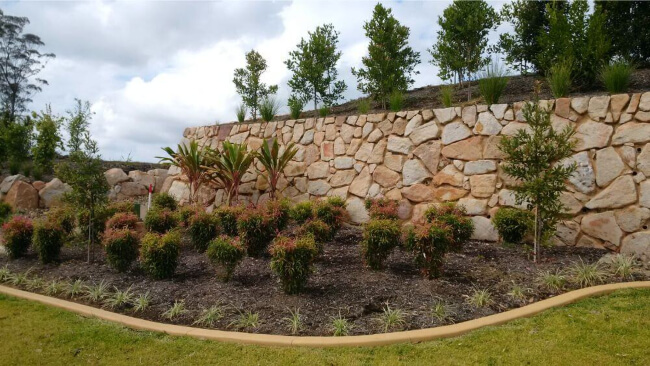
Source: Able Nursery
Propagating Great Balls of Fire Plant
As with any select cultivar, I always recommend starting with a nursery plant. You can find a tubestock plant with young and healthy roots that will establish quickly in your garden, allowing you to reap the many decorative benefits of the shrub sooner.
Alternatively, you can grow this plant from seed or propagate it using semi-hardwood cuttings.
Growing Callistemon ‘Great Balls of Fire’ from Seeds (Early Spring)
Fill a seed tray with a quality seed-raising mix and firm with your fingers. Water the mix and allow excess moisture to drain. Sow the seeds thinly, using 1 or 2 seeds per module.
Once sown, lightly cover the seeds with some compost or vermiculite. Cover the tray with a secured plastic bag or wrap, then keep the mixture slightly moist at all times until germination.
Propagating Callistemon ‘Great Balls of Fire’ Using Cuttings (Late Summer)
Take semi-hardwood cuttings from the current season’s growth in late summer. Each cutting should be 12 to 15 centimetres in length. Prepare containers filled with quality potting soil then firm and water lightly.


Get Your Free Guide:
Master Growing Australian Natives eBook
A Must Have Complete Guide for Every Australian Garden
Get Your Free Guide:
Master Growing Australian Natives eBook
A Must Have Complete Guide for Every Australian Garden
Remove the lowest leaves from the cuttings then dip the cut ends into a rooting hormone. Place the cuttings snug into the mix and firm around the base. Place in a sheltered location with semi-shade and keep moist until rooted.
Callistemon ‘Great Balls of Fire’ Ideal Growing Conditions
Spring is the best time to initially introduce your shrub to the garden. Once established, these hardy cultivars grow vigorously and are mostly fuss-free additions.
Ideal Soil
Great balls of fire can grow well in a variety of soil types including clay, sand, and loam soil. However, it does tend to prefer sandy-loam soil with a neutral pH in gardens. The soil must be free-draining and able to retain healthy moisture levels.
Sunlight Needs
Aim to pick a sunny spot in your landscape that gets full sun to half shade. The more sun the shrub gets, the better and more vibrant it looks and the better it grows.
Overwintering
If you live in an area that experiences frosts, it might be best to grow your shrub in a container so you can move it somewhere frost-free in winter.
Caring for Callistemon ‘Great Balls of Fire’
Once established in the garden, this cultivar is tolerant to drought and salt but not frost. While this plant is low-maintenance and mostly self-sufficient, it will thrive with some extra care.
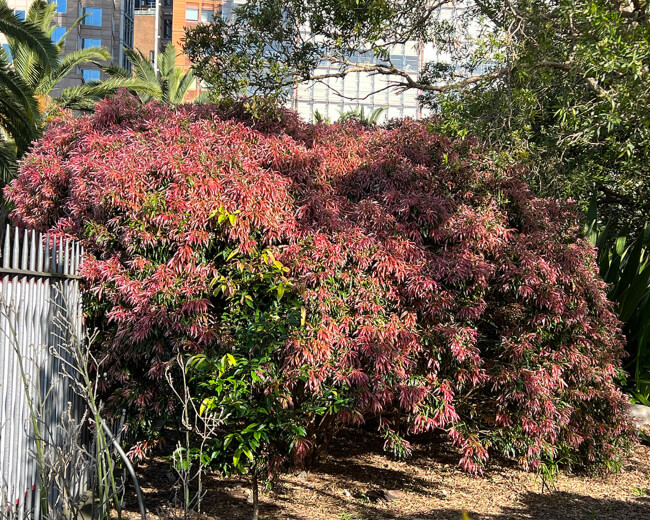
Source: GardensOnline
Pruning Callistemon ‘Great Balls of Fire’
Lightly prune and trim regularly to encourage a dense and healthy growth habit. This shrub can tolerate some hard pruning if size and shape need to be controlled. Prune after flowering in summer to stimulate brilliant new growth for the next season.
Watering
Water Callistemon ‘Great Balls of Fire’ well while young then it will only require little supplemental watering once established. In dry and hot conditions, it will appreciate a good deep watering but on average, water only about once per month.
Fertilising
Feed with a quality all-purpose and slow-release native fertiliser in spring. Try to use a low-phosphorus fertiliser that is specifically designed for Australian natives. Alternatively, feed with some blood and bone fertiliser.
Pests and Diseases
This cultivar was specifically bred to be resistant to common pests and diseases and therefore has no serious issues of note.
Callistemon ‘Great Balls of Fire’ FAQs
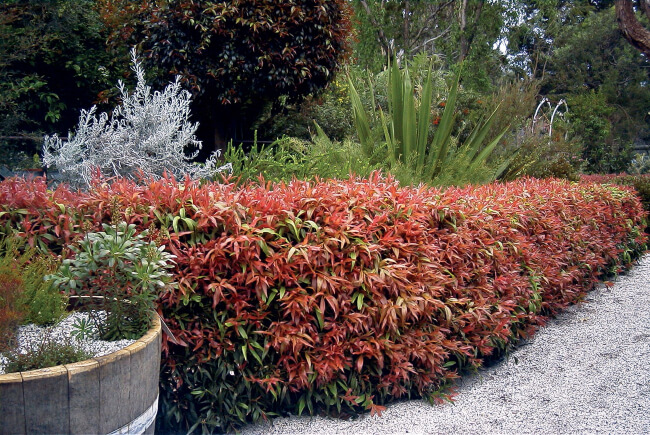
Source: Plants Management Australia
How tall do Callistemon ‘Great Balls of Fire’ grow?
The shrub will usually reach between 1 to 2 metres in height, perfect for use as a low-growing impact hedge or border.
What is the Callistemon ‘Great Balls of Fire’?
The notorious Callistemon cultivar, ‘Great Balls of Fire’ was developed in Australia over two decades ago and is celebrated for its dense compact habit and its intense hues of pinkish-red new growth that sits atop the plant's deep-green mature foliage.
Is Callistemon hardy?
Yes, most Callistemon species and varieties are hardy and adaptable to many growing conditions, especially in Australia.
Is Callistemon ‘Great Balls of Fire’ an evergreen?
Yes, this showy shrub features smooth and slender evergreen foliage.
How long does the Callistemon ‘Great Balls of Fire’ live for?
These hardy shrubs can live up to 40 years in the right conditions.
Can you grow Callistemon from cuttings?
Yes, take semi-hardwood cuttings from the current season’s growth in late summer and root in a quality propagation mix.
Enjoy One of Our Most Colourful Cultivars with Callistemon ‘Great Balls of Fire’
There’s a lot to love about this plant. Whether for its enchanting and dramatic contrasts of mature green growth against its brilliant pinkish-red new growth or its practical use in gardens, this special cultivar certainly deserves a spot in any frost-free Australian garden that needs a showy shrub for hedging, bordering or gap-filling.
Start growing your Callistemon ‘Great Balls of Fire’ today.
Published on July 28, 2023 by Gary Clarke
Last Updated on September 19, 2025

